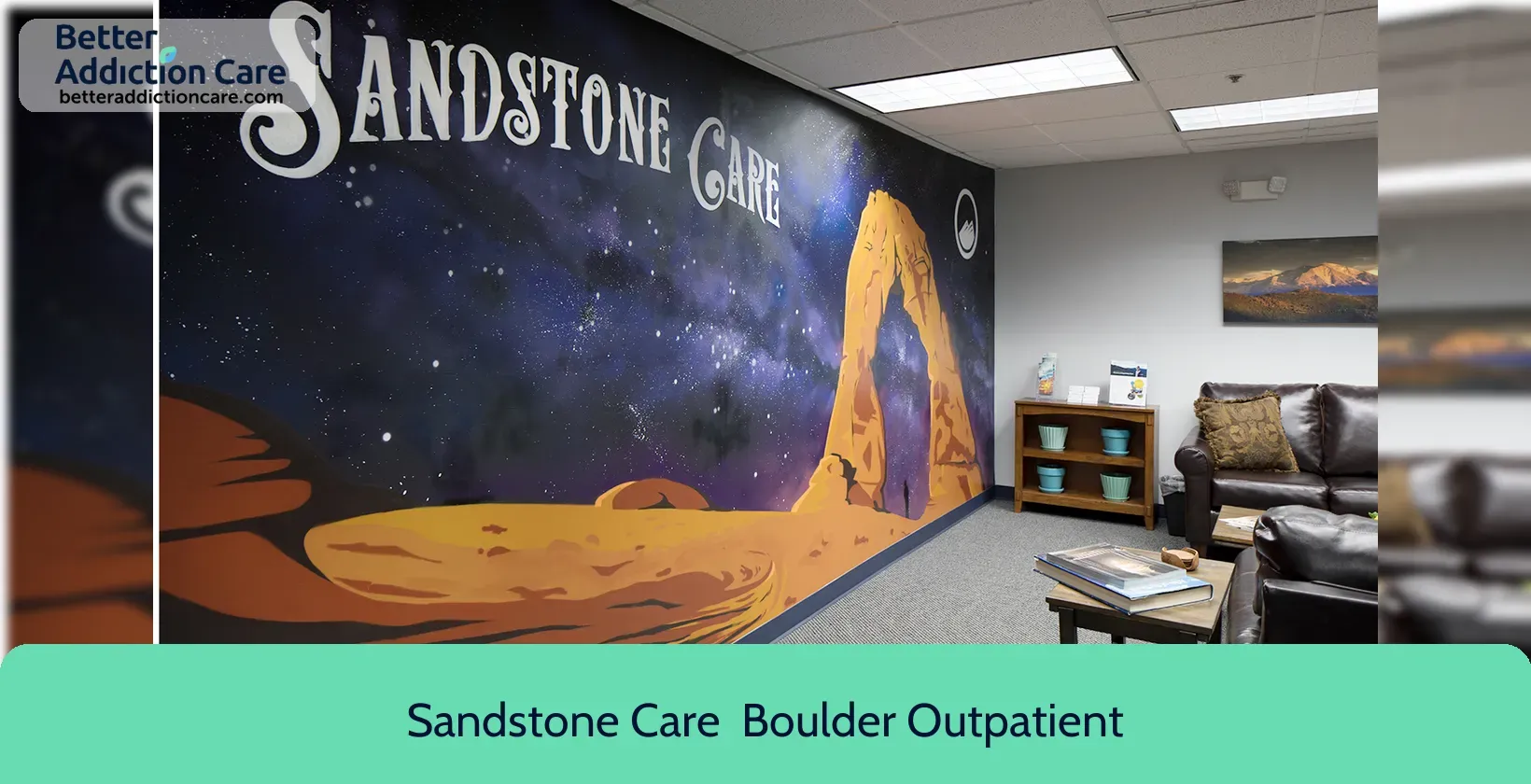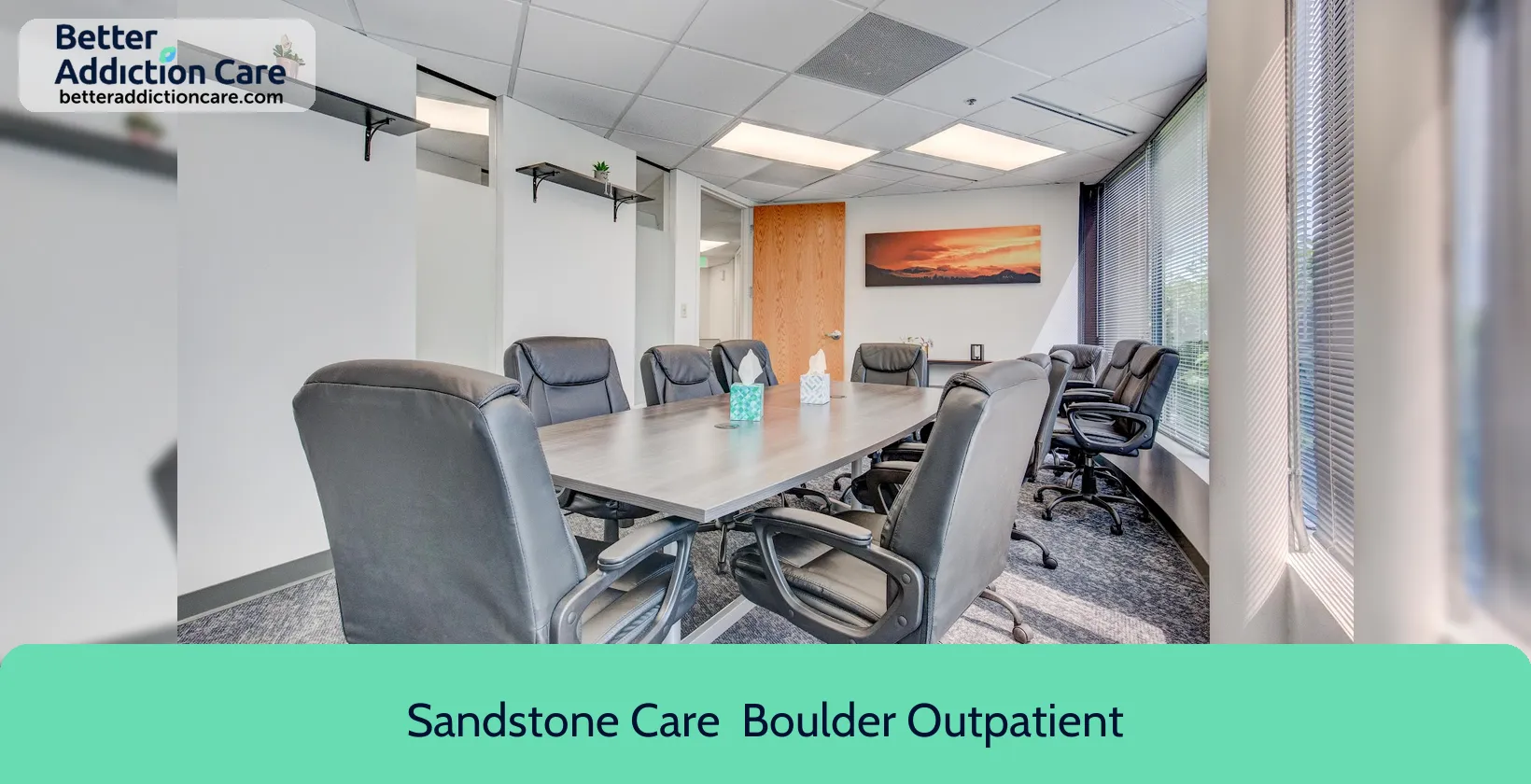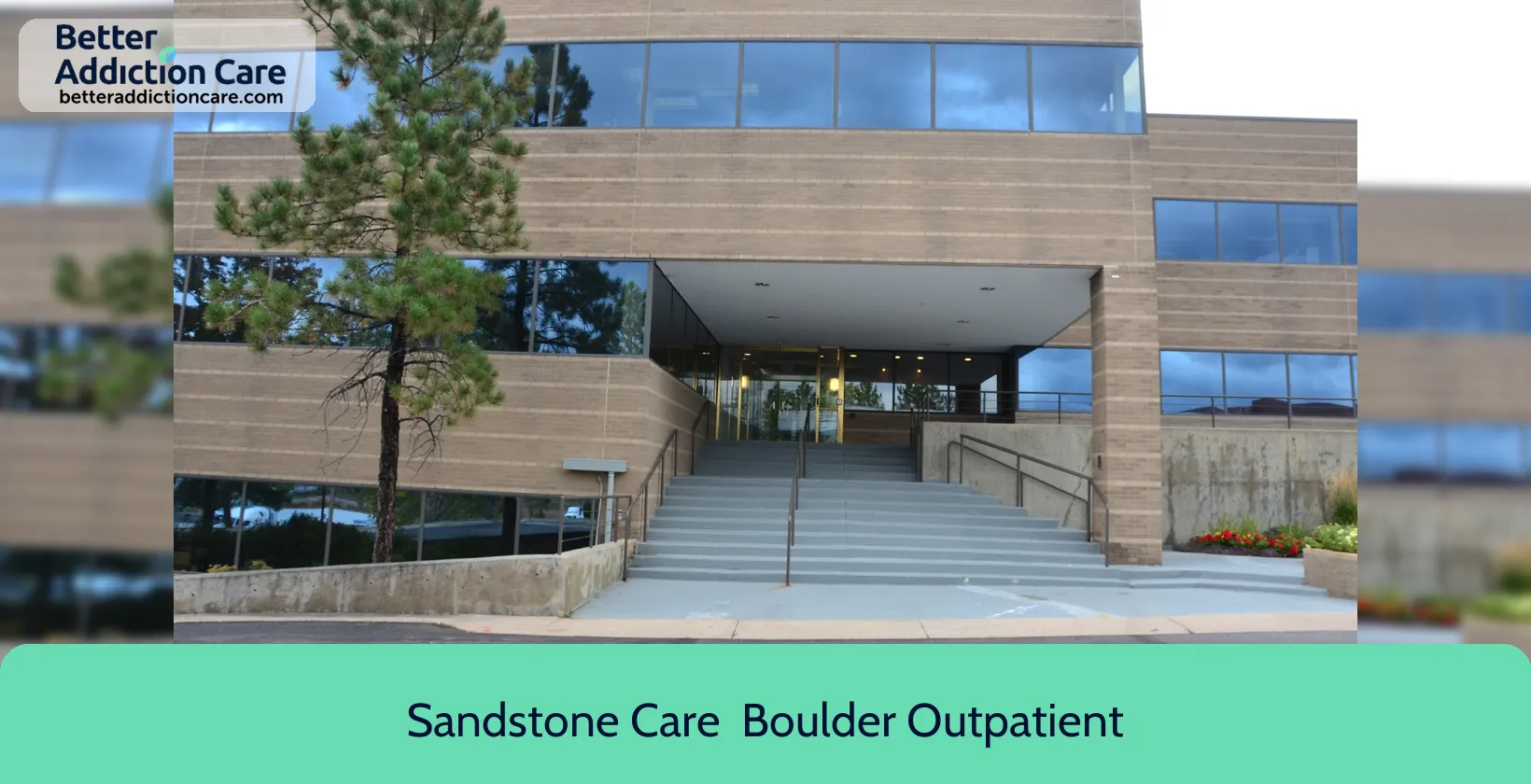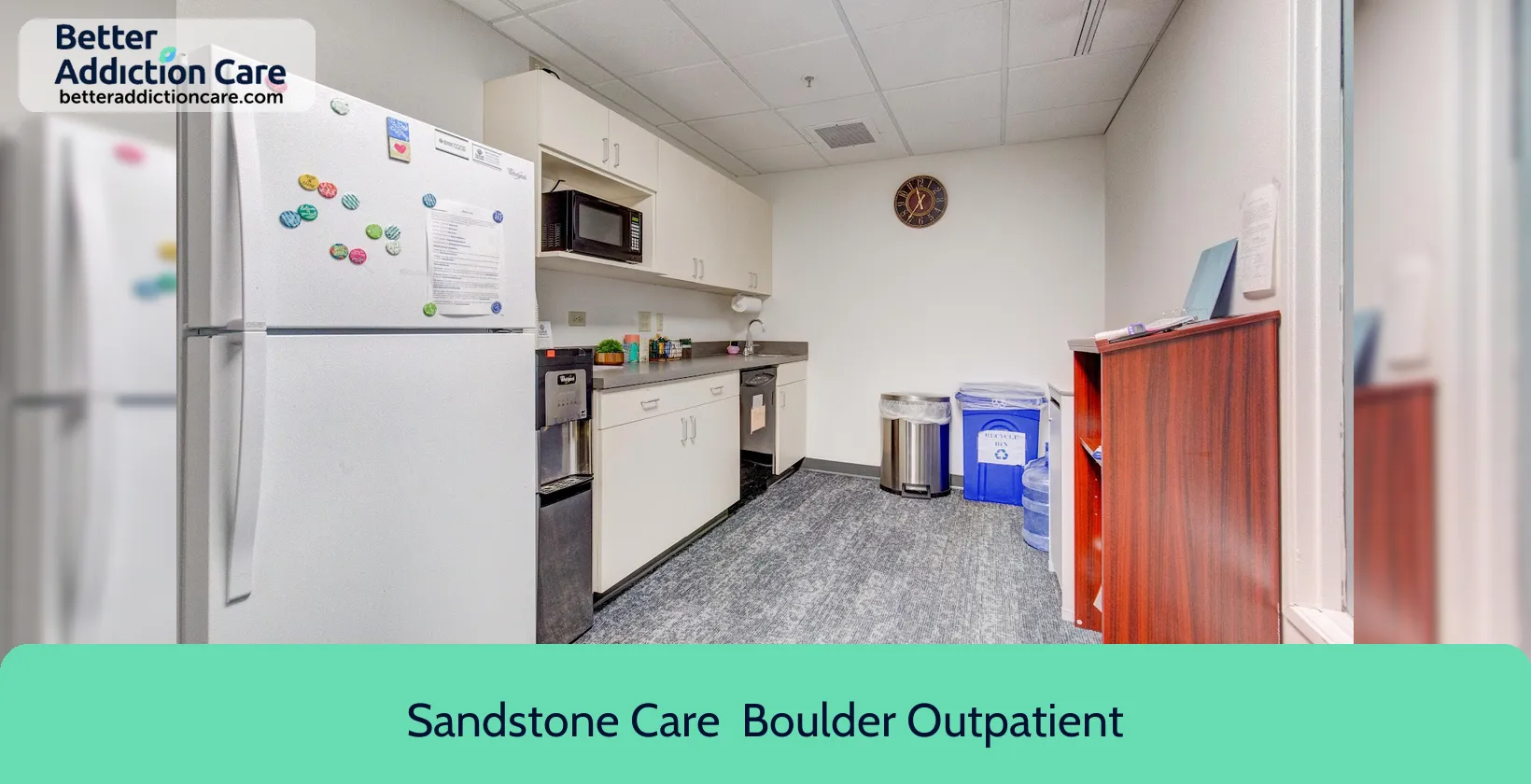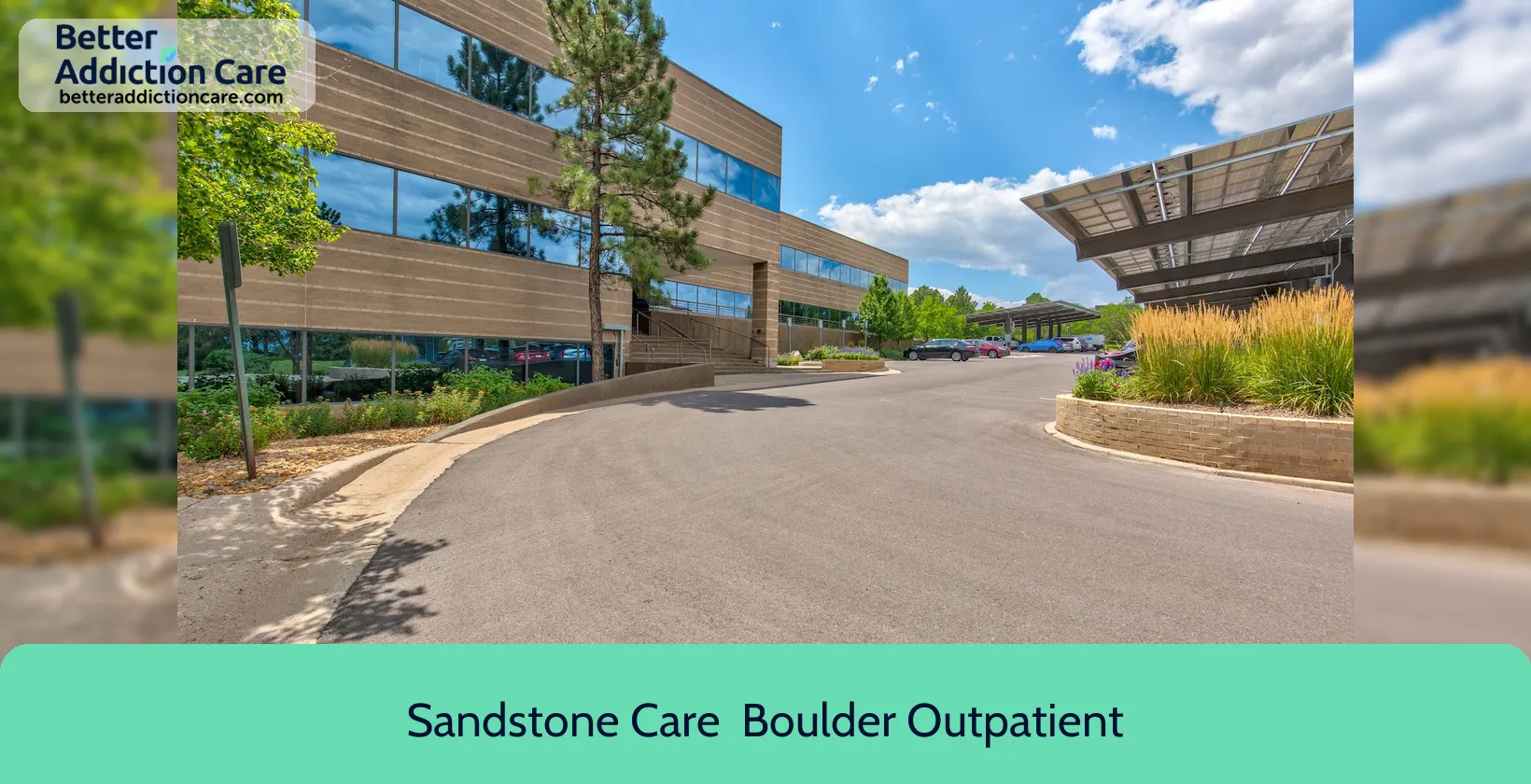Sandstone Care - Boulder Outpatient
Overview
The Boulder Rehab Center for Drug & Alcohol Addiction is in Broomfield, Colorado, and it treats teens and young adults with substance use disorders. It does this by offering age-specific care that is tailored to the specific problems that this group of people faces. The facility doesn't offer gender- or faith-based-specific programs. Instead, it focuses on age-specific support to make a personalized recovery setting.
The center has many different programs, such as medically-assisted rehab, residential care for people who are addicted, PHP (partial hospitalization programs), IOP (intensive outpatient programs), transitional living, day treatment, and services for people who have finished treatment. Cognitive Behavioral Therapy (CBT), family and group therapy, medication management, activity therapy, and personalized treatment plans are some of the ways that people are treated. The facility encourages family participation and actively involves family members in the recovery process. It also offers academic and vocational support to help clients succeed in their personal and professional lives. Boulder Rehab Center meets high standards of care and is accredited by The Joint Commission. They also accept a number of private insurance plans, but clients should check with the center directly to make sure they are covered.
Sandstone Care - Boulder Outpatient at a Glance
Payment Options
- Cash or self-payment
- Private health insurance
- Federal military insurance (e.g., TRICARE)
- IHS/Tribal/Urban (ITU) funds
- Monthly
Assessments
- Screening for tobacco use
- Comprehensive mental health assessment
- Comprehensive substance use assessment
- Outreach to persons in the community
- Screening for mental disorders
Age Groups
- Adolescents
- Young adults
- Children/adolescents
- Adults
Ancillary Services
- Case management service
- Suicide prevention services
- Mental health services
- Social skills development
- Transportation assistance
Highlights About Sandstone Care - Boulder Outpatient
7.91/10
With an overall rating of 7.91/10, this facility has following balanced range of services. Alcohol Rehabilitation: 8.00/10, Drug Rehab and Detox: 8.77/10, Insurance and Payments: 6.93/10, Treatment Options: 7.94/10.-
Drug Rehab and Detox 8.77
-
Alcohol Rehabilitation 8.00
-
Treatment Options 7.94
-
Insurance and Payments 6.93
Accreditations
The Joint Commission:

The Joint Commission, previously known as JCAHO, is a nonprofit organization that accredits rehabilitation organizations and programs. Established in 1951, its mission is to enhance the quality of patient care and showcase excellence in healthcare delivery.
Effective date: 11/09/2016
Registration: 589408
NAATP:

The National Association of Addiction Treatment Providers (NAATP) accreditation for addiction and behavioral health is a recognized and respected certification that signifies a treatment center's commitment to delivering high-quality services in the field of addiction and behavioral health. It serves as an assurance of compliance with industry standards and best practices, ensuring that individuals seeking help receive effective and ethical care. Accreditation from NAATP demonstrates a facility's dedication to maintaining rigorous standards, fostering accountability, and prioritizing the well-being and recovery of its clients.
State department of health:

Government agencies issue State Licenses, which grant rehabilitation organizations permission to conduct their operations lawfully within specific geographic regions. Licenses needed to operate are typically determined by the type of rehabilitation program offered by the facility and its physical location.
Registration: 1791-01
Treatment At Sandstone Care - Boulder Outpatient
Treatment Conditions
- Alcoholism
- Mental health treatment
- Substance use treatment
- Co-occurring Disorders
Care Levels
- Outpatient
- Outpatient detoxification
- Outpatient methadone/buprenorphine or naltrexone treatment
- Outpatient day treatment or partial hospitalization
- Intensive outpatient treatment
Treatment Modalities
- Cognitive behavioral therapy
- Telemedicine/telehealth therapy
- Substance use disorder counseling
- Trauma-related counseling
- Smoking/vaping/tobacco cessation counseling
Ancillary Services
Languages
- English
Additional Services
- Pharmacotherapies administered during treatment
- Mentoring/peer support
- Breathalyzer or blood alcohol testing
Special Programs
- Clients with co-occurring mental and substance use disorders
- Clients who have experienced trauma
Get Help Now
Common Questions About Sandstone Care - Boulder Outpatient
Contact Information
Other Facilities in Broomfield

7.69
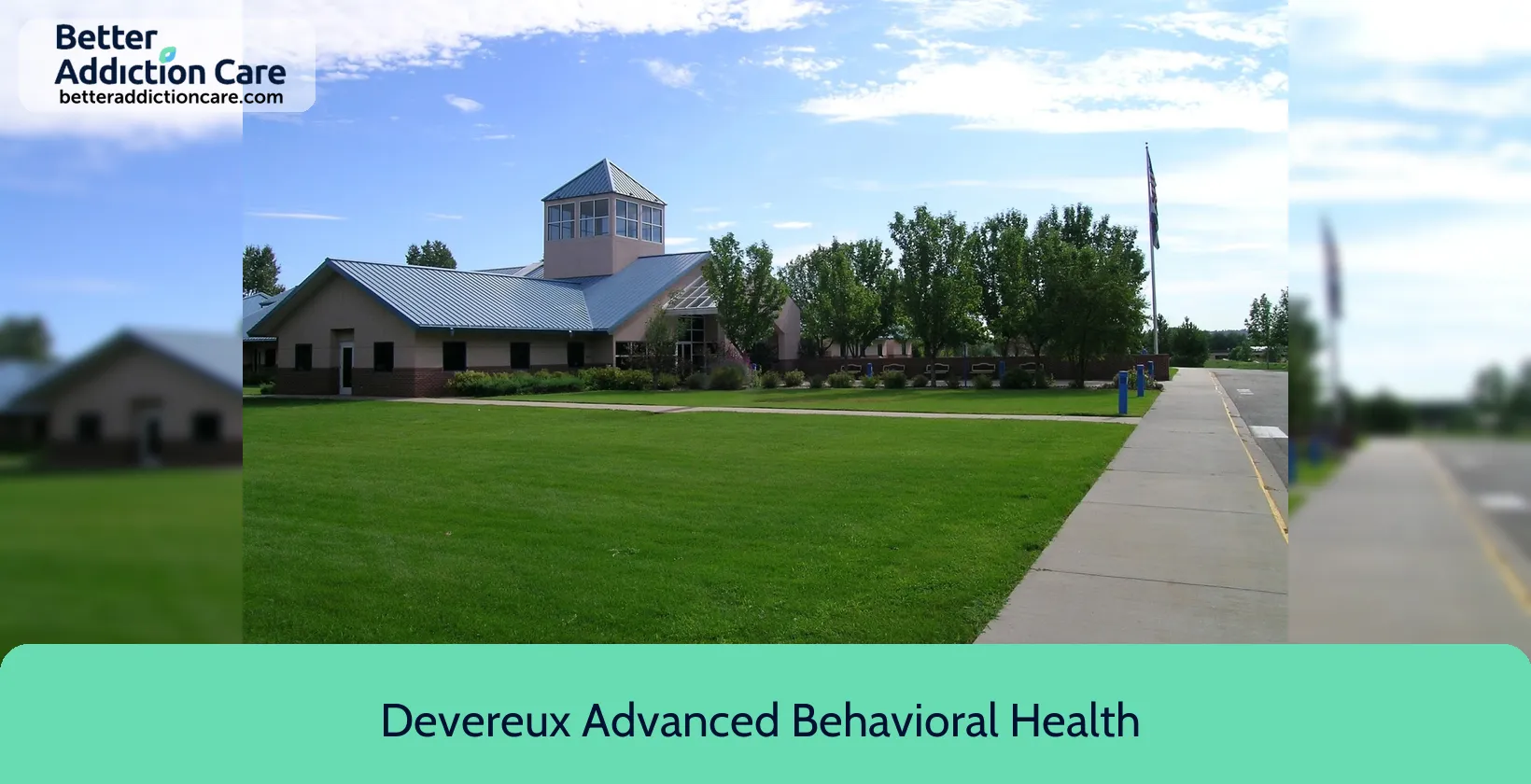
6.65
Browse rehab centers near Broomfield and in other cities across Colorado
DISCLAIMER: The facility name, logo and brand are the property and registered trademarks of Devereux Advanced Behavioral Health - Devereux Cleo Wallace, and are being used for identification and informational purposes only. Use of these names, logos and brands shall not imply endorsement. BetterAddictionCare.com is not affiliated with or sponsored by Devereux Advanced Behavioral Health - Devereux Cleo Wallace.
